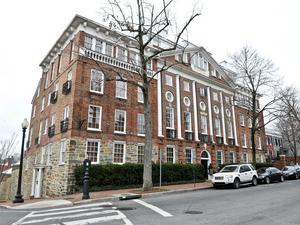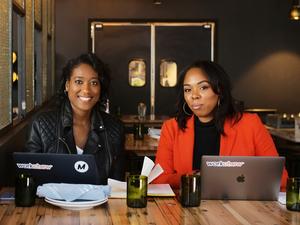
Since its launch a few years ago, D.C. entrepreneur Dahna Goldstein and New York artist Alexandra Posen have worn their ideals on their sleeve with their District clothing startup that espouses a stronger democracy.
Now, they’re putting them where their mouths are with a new mask line — and looking to grow the company even further into 2021.
The co-founders launched Resistance by Design in 2018 to “help people essentially wear their values, make it clear how they felt about the direction of the country, but also raise awareness about critical issues,” Goldstein said. The Jan. 6 attack on the U.S. Capitol building only fueled that fire and “highlighted for the country, but particularly for people living in the region, just how fragile democracy is,” she said.
For the startup, those events reinforced the need to bring issues such as gerrymandering, voting rights and diverse representation further into the public consciousness — and into both its fashion sense and business model, Goldstein said.
It’s doubling down on its pivot last year to “vote” masks with a new line this year of “we the people” masks, and socks, sweaters and scarves that shine a light on voting rights and gerrymandering. Those were inspired by “the wildness” of the gerrymander district shapes, Posen said. And with each district labeled, it’s subtle, Goldstein said, “but it’s a way to contextualize that it’s not just an odd shape, it’s an odd shape that reflects people and how they’re represented in Congress, how resources are allocated.”
The public traction, too, has continued — most recently with soccer star Megan Rapinoe wearing its gerrymander sweater and scarf on “The Tonight Show.”
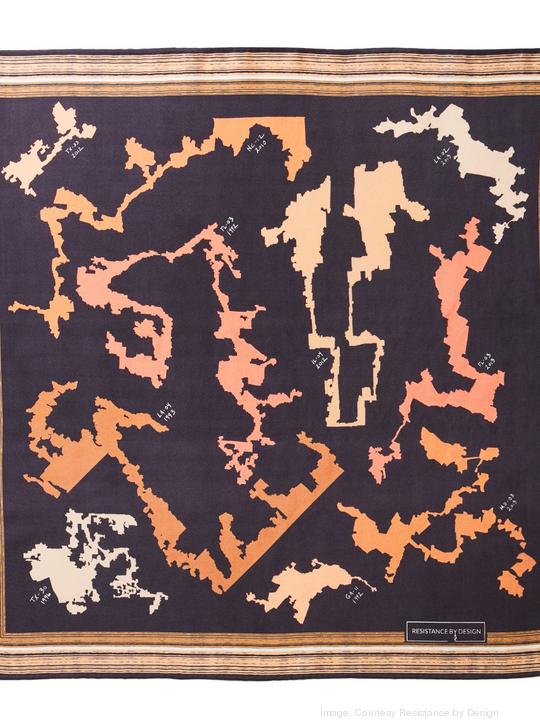
“We’re leaning more into the notion of being able to mobilize people around defending democracy and recognizing that just because we’ve had a change in the administration, it doesn’t mean that the fight for democracy is over,” Goldstein said. “In fact, in some ways, it’s really just beginning.”
Resistance by Design, which grew from its founding duo to five people by the end of last year, has been generating revenue since its first day, though it didn’t specify any figures. It said it sold tens of thousands of “vote" masks last year at $20.20 apiece. RBD hasn’t raised any funding and still doesn’t plan to for now, though the partners “wouldn’t necessarily rule it out,” Goldstein said.
While most of the company’s sales were through its website, the founders did ink some limited deals with a few retail locations. “If there are museum stores or particular retail locations that would make sense, we’re not opposed to also having our product available in places like that,” Posen said.
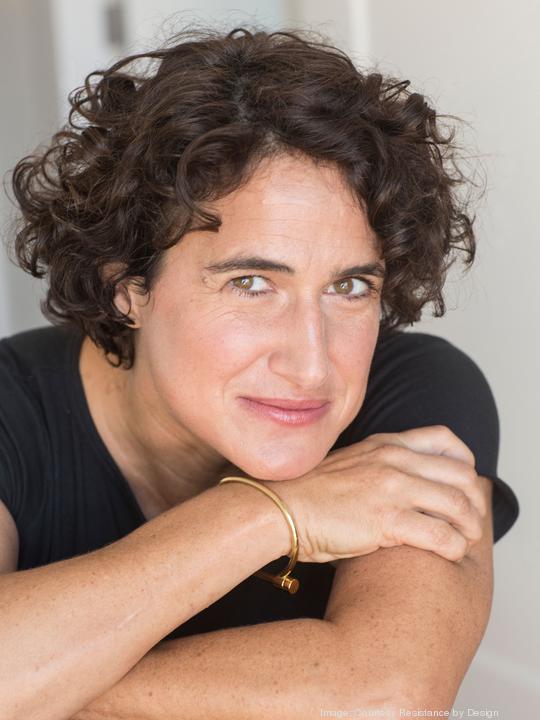
It’s an evolution from RBD’s first product, a scarf illustrating more than 200 women running for Congress during the 2018 midterm elections. Its initial wares had focused on women's voting rights and even their historic presidential runs before the coronavirus pandemic forced the duo “to figure out where our voice fit within this new reality that we were all experiencing,” Goldstein said.
Last year is when they debuted their “vote” mask, a “loaded, poetic and powerful statement,” said Posen, its designer. “The initial instinct wasn’t so much a tool for getting out the vote as it was a reaction to the state that we were in and to our concern about lack of leadership in the Trump administration, and the irony of needing to be vocal about that, but also having our mouths covered.”
It quickly gained traction, including with former Secretary of State Hillary Clinton, who wore and posted it on social media. “We realized that we have an opportunity not just to make a statement, but with that statement to help get out the vote and to help organizations that were getting out the vote,” Goldstein said.
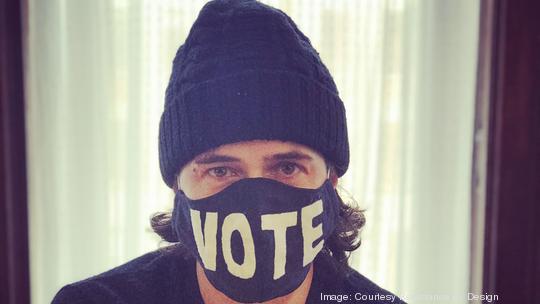
RBD has since donated a portion of the masks’ proceeds to a voting rights organization, Fair Fight, founded by former Georgia House Democratic Leader Stacey Abrams. The business also started spotlighting and donating to under-resourced grassroots organizations from key districts.
Goldstein is director of impact investing for Georgetown social entrepreneurship nonprofit Halcyon, which isn't affiliated with this business. Goldstein had co-founded RBD while in her prior role at D.C. think tank New America, where she worked with the public sector on social impact tech. She previously founded and led D.C. nonprofit grant management platform PhilanTech to its sale to Altum Inc. in 2014. Posen, an artist and mother based in New York, was director of a clothing label for her brother, Zac Posen, for a decade and, more recently, worked on her own abstract art.
